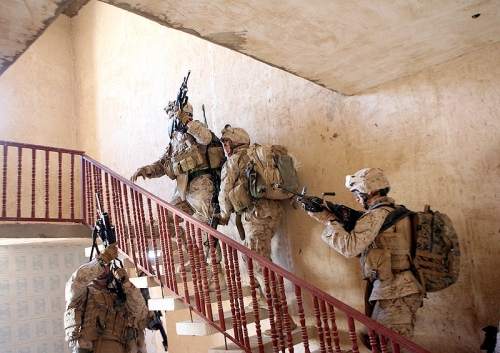Army veteran Scott Weakley is a former marathon runner who returned from the second Iraq war barely able to climb two or three flights of stairs without feeling exhausted.
“Outwardly, I looked very healthy, so I was like, ‘Is this psychological, or am I just making this up?” said Weakley.

“When I got back I could barely run a quarter of a mile… I could barely go up two or three flights of stairs, I could barely play with my son in the front yard, baseball, maybe 10, 15 minutes.”
A lung biopsy revealed Weakley has a disease called constrictive bronciolitis, which doctors believe he contracted while in Iraq.
Weakley was surprised to find out he wasn’t alone as more and more vets came forward with similar problems.
According to the Veterans Administration’s Medical Center in New York, troops who served in Iraq and Afghanistan between 2004 and 2010 are seven times more likely to suffer from respiratory illness than those deployed in other parts of the world.
Fortunately, doctors at the National Jewish Health center in Denver, Colorado, have received a $500,000 grant and are attempting to research the root cause of the problem.
“[Still], we don’t have enough information to know precisely what’s causing the increase in respiratory symptoms in people who are deployed,” explained Dr. Cecile Rose.
“What we do know is people who are deployed in southwest Asia, [in countries such as] Iraq and Afghanistan are exposed to high levels of dust and particulate matter, they’re exposed to the combustion products that emanate from the burn pits were things are burned.”
According to Rose, one of the strangest elements of the enigmatic ailment is that standard breathing tests and CT scans routinely show up clean.
“Conventional breathing tests and CT scans of the chest that we’re doing on people who have shortness of breath for no reason, are normal. The tests are normal.”
Interestingly enough, Rose also said she has detected certain parallels between the veterans and first responders exposed to massive amounts particulate dust after the attack against the World Trade Center on 9/11.
“Looking at pre-9/11 and post-9/11 lung function there was clearly a difference…”
(Via Fox News)






